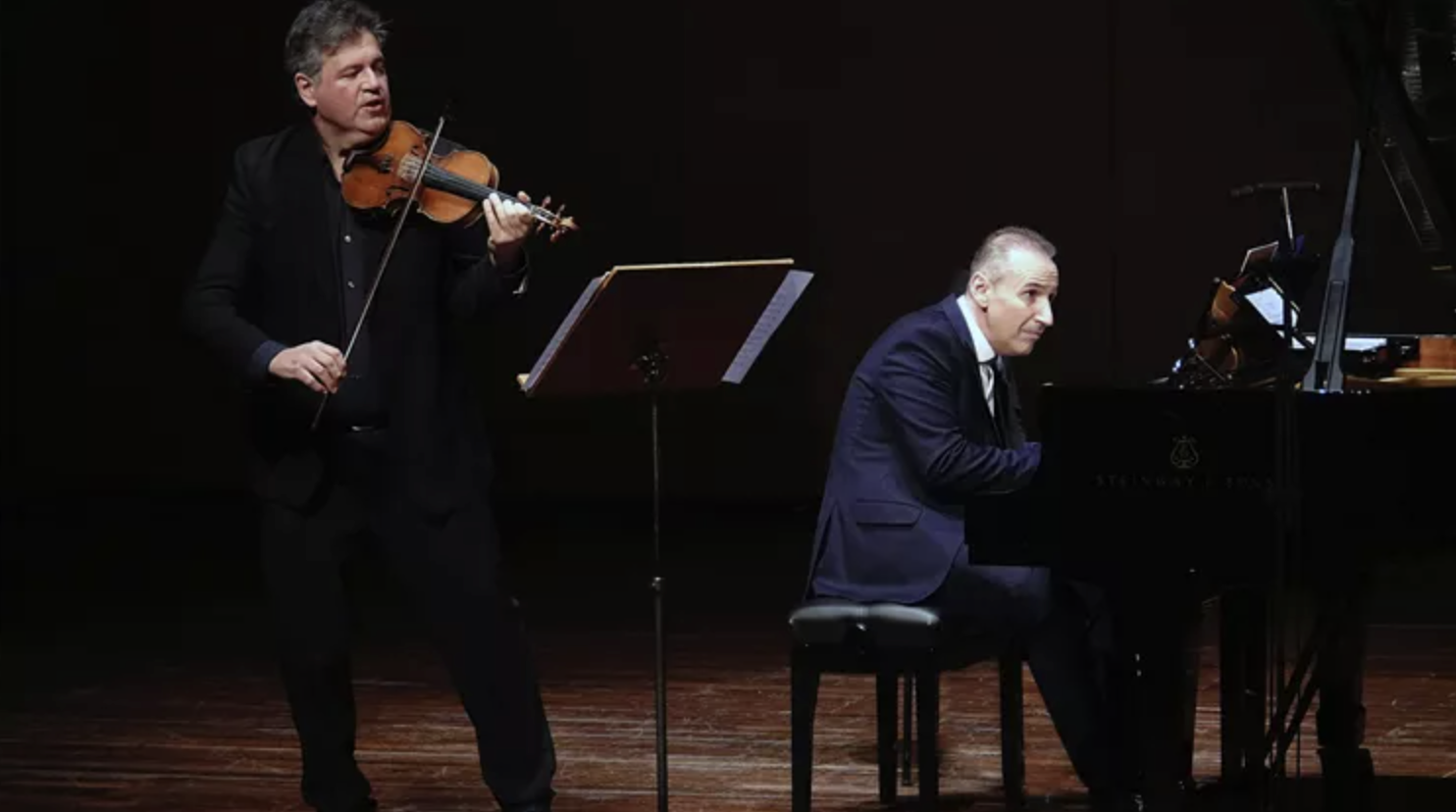Latest News

Papanas has developed regular collaborations with Simon Trpčeski, one of the world's most important pianists and today's leading musician in neighboring North Macedonia. The excellent pianist made his belated first appearance in Athens, giving only a small taste of his great talent!
The evening opened with Mozart's two-movement Sonata in E minor K.304, written at a time when the three-movement sonata of the classical period had not yet been established. Distancing himself from the restrained expression with which early classicism is associated, Papanas performed it with intense, almost early romantic theatricality, which was brilliantly balanced by Trpčeski's more poetic and melancholic playing. In the minuet, however, the more dynamic and equal violin-piano dialogue was pleasing.
More obvious was the interpretation of Brahms's 2nd Sonata for Violin and Piano, the shortest and most luminous and lyrical of his three, but perhaps also the most demanding interpretatively, as it requires a delicate balance between virtuosity and expressiveness. The 47-year-old violinist rendered it with genuine romantic gesture and rich sound, the intense melody and contemplative character conversing with Trpčeski's piano, which provided yet another valid example of stylistic flexibility and understanding.
The second part opened with a stirring performance of the Prelude and Allegro in the Style of Pugnani by the famous violinist Fritz Kreisler . In the short 7-minute work, which combines lyricism and technical challenges, Papanas gave a real demonstration of the polyphonic capabilities of his violin, utilizing his long and fruitful experience in the baroque repertoire.
The program concluded with a truly dazzling performance of Grieg's 3rd Sonata, a work once extremely popular, but now rarely heard in concert halls. Solid virtuosity, well-balanced speeds and dynamics, but sometimes more melodic and sometimes sharper phrasing, allowed Papanas to ideally project the work's changing moods, from the most dramatic to the most lyrical, and from the most dreamy to the most dance-like. His beautiful legato playing, full of passion and musicality until the celebratory finale balanced equally with the romantic temperament and narrative eloquence of Trpčeski.
Strongly applauded by the large audience, the two musicians performed three short encores, with respect to friendly cultural relations with the neighboring Balkan countries. The much-loved melodic piece Sevdana (1944) by the Bulgarian Zlatev-Tserkin, the traditional song-based, perpetually moving Capriccio No. 1 (1984) by the North Macedonian composer Suplevski, as well as the moving proto-leo by Riadis Lullaby ("In the cradle of a little orphan Macedonian"), written (1908) in times of wars with the neighbors, completed an excellent recital in every respect!

